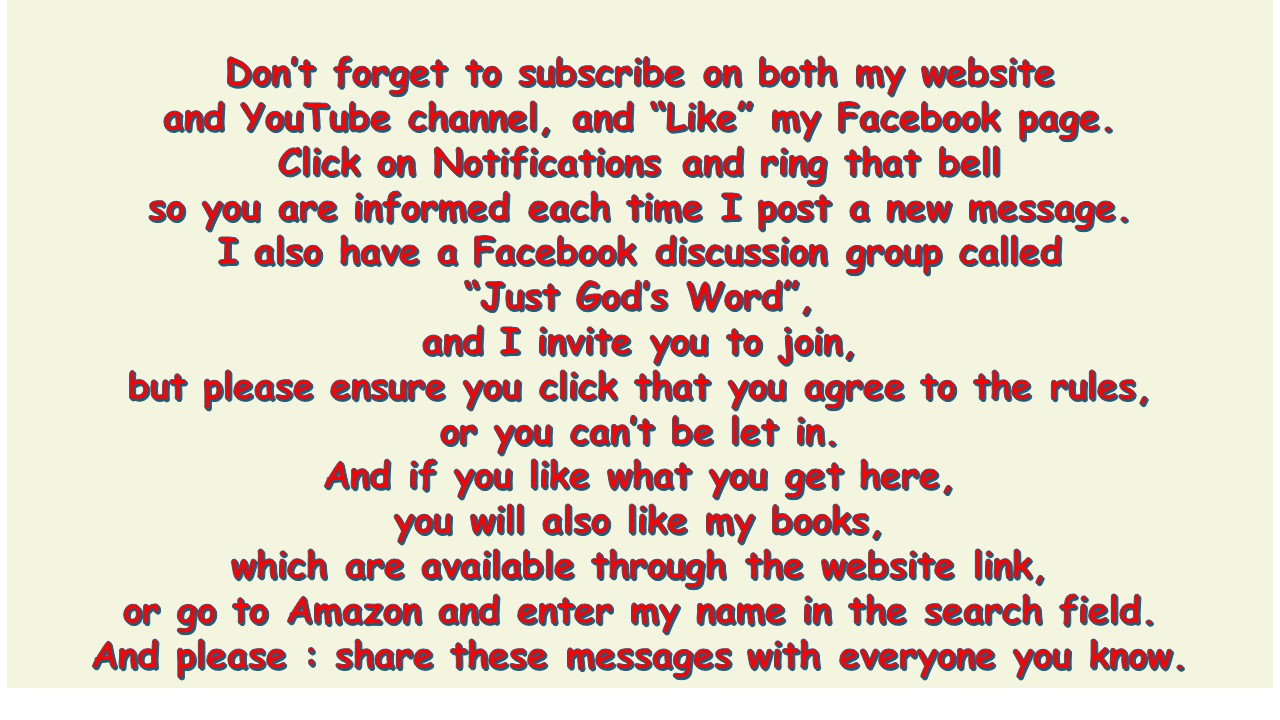God told Abraham that the world will be blessed by his descendants (Genesis 22:18), and that has come to be, just as God said it would.
But that blessing has also painted a big, red target on our backs throughout the millennia.
If you prefer to watch a video, click on this link: Watch the video.

The success of Isaac caused him to be asked to leave his home by the ruling king (Genesis 26:16), and when we were in Egypt our success there led to our enslavement for 400 years. Later, during the Inquisition, when we had a large population in Spain and the Spanish colonies, Queen Isabella was jealous of the financial strength we had (besides the standard amount of anti-Semitism that has always been around) and had us either ejected from the countries that Spain controlled, or tortured (and often killed) unless we accepted Christianity (giving birth to the Hispanic Jews called “Conversos”).
I don’t need to tell you about Hitler, who saw the Jews as a threat to his control since we had such influence in both business and banking. And look at what is happening today- the success of the Jewish nation of Israel has caused a new increase in the hatred of the Jewish state (which, by definition, means hatred of the Jews, since Jews and Israel are inseparable), even here in America!
The world has definitely been blessed by Jews- did you know that nearly 22% of all Nobel prizes have gone to Jews? Yet, we represent only .2% of the global population, which is only 2 out of every 1000 people in the world! And let’s not forget about music, literature, and comedy: Jews been entertaining people for centuries. Some of the more recent names you may know are Natalie Portman, Harrison Ford, Dustin Hoffman, Bob Dylan, Leonard Nimoy, Seth Rogan, Paul Newman, Daniel Radcliff, Adam Sandler, Alan King, George Burns, and Jack Benny.
And in music we have Sammy Davis, Jr., Paul Simon, Billy Joel, Leonard Bernstein, Aaron Copeland, George Gershwin, Vladimir Horowitz, Felix Mendelssohn, and I haven’t even started to name scientists: there’s Niels Bohr and Albert Einstein, or philosophy (Spinoza), or psychiatry (Freud), or literature (Elie Wiesel, Arthur Miller) or journalism (remember the Watergate scandal- a Jewish reporter named Bernstein broke that story). Even in graphic arts, there’s Stan Lee, not to forget Joe Shuster and Jerry Siegel, who created Superman, and then there’s… well, you get the picture, right? The list goes on and on and on.
All this success, yet we are still hated and persecuted and despised all over the world. Why is that? Is the world really that unappreciative?
I don’t think it’s a matter of appreciation, or respect, but simply that those who don’t have or can’t do hate those that have and who can do. God made us his representatives, literally his kingdom of priests (Exodus 19:6) to the world, and as such when you are standing on the top of the mountain, you are a big target for those at the bottom who want to be at the top.
I know that this sounds very egocentric and self-absorbed, so please do not think that I believe we Jews are any better than anyone else. In fact, we have shown the world, throughout our history, we are probably the worst. We have shown everyone how to sin, how to reject God, and how to be rebellious and childish. But ya wanna know what the saddest thing about all that is? It’s that instead of learning from our many, many mistakes, the world has chosen to not just imitate them, but has done even worse!
Whereas we know what God said we are to do, but we often haven’t, Christianity simply says, “Hey, we don’t have to!”
I am willing to wager that many of you reading this have also experienced what it is like to be a success, or popular, or been at the top of the class, so to speak, and found that suddenly you are secretly not liked by some who say they are your friends, or outright hated by others, whether because of jealousy or just a sense that when you do something they want to do, but can’t, they project their feelings of frustration onto you.
For whatever reason, being successful in this world means that you will be hated and rejected by many.
As I have said from the start, being blessed is a two-edged sword, so be careful in whatever you do, because you will need to tread softly and watch where you step as you climb that ladder to success.
Thank you for being here; that’s it for this week so l’hitraot and (an early) Shabbat Shalom!
